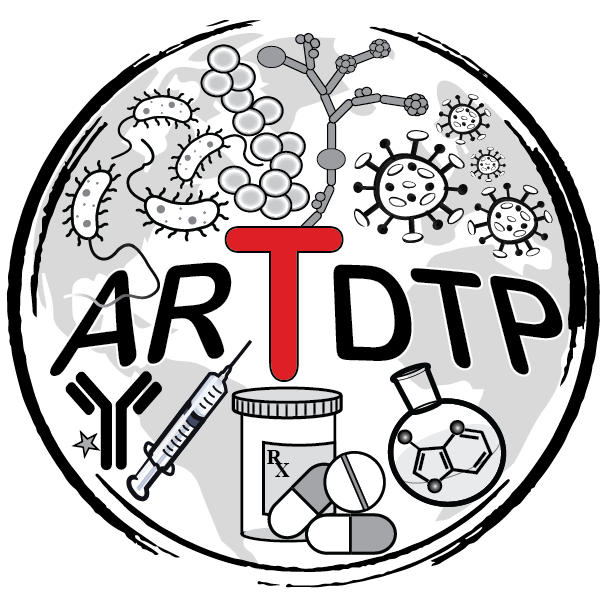ARTDTP
Welcome to the Antimicrobial Resistance and Therapeutic Discovery Training Program (ARTDTP)
Antimicrobial resistance (AMR) is one the most significant challenges currently facing modern healthcare. Recognizing this growing threat, the Antimicrobial Resistance and Therapeutic Discovery (ARTDTP) at Emory University was established more than a decade ago with the goal of training the “next gen” of PhD researchers with deep expertise in their own AMR-related specialty but who are also conversant in the broad swath of intersecting fields that will be required to effectively combat the threat posed by all forms of AMR.
About ARTDTP
ARTDTP supports graduate students enrolled in the Laney Graduate School of Emory University who are conducting basic research on antimicrobials, mechanisms of antimicrobial resistance, and therapeutic discovery and development to combat infectious diseases. Students working in one or more of these areas with primary interests in biochemistry, immunology, microbiology, pharmacology or synthetic chemistry are encouraged to participate in ARTDTP. Currently, eligible students in their third and fourth years of PhD training are drawn from one of four programs of the Graduate Division of Biological and Biomedical Sciences (BCDB, IMP, MMG and MSP) or the Department of Chemistry graduate program. ARTDTP provides rich educational and research opportunities to its appointees, drawing on the diverse expertise of the ARTDTP training faculty as well as numerous research and clinical facilities at Emory and elsewhere. ARTDTP is currently supported by NIH funding through NIAID award T32 AI106699 (until 2030). Students interested in appointment to ARTDTP are welcome to contact Drs. Conn and Goldberg (ARTDTP Co-Directors) to discuss the application process.
Learn more about ARTDTP and our associated graduate programs
Program Directors
ARTDTP is co-directed by Drs. Graeme L. Conn and Joanna B. Goldberg, who also jointly serve as MPIs on the NIAID T32 award that supports this training program (T32 AI106699). Please see below for more information and contact details for the ARTDTP co-directors.
Graeme L. Conn, PhD
Co-Director
Dr. Conn is a Professor in the Department of Biochemistry, Emory University School of Medicine. His research program centers on mechanistic studies of antibiotic action and resistance in bacteria, and RNA-mediated regulation of human innate immune system proteins, with a longer-term goal of translating these fundamental insights into new antimicrobial therapies.

Joanna B. Goldberg, PhD
Co-Director
Dr. Goldberg is a Professor in the Division of Pulmonary, Asthma, Cystic Fibrosis, and Sleep in the Department of Pediatrics at Emory University School of Medicine. She holds a secondary appointment in the Department of Microbiology and Immunology. Dr. Goldberg's research program focuses on bacterial genetics, genomics, and pathogenesis, with a particular emphasis on respiratory infections in cystic fibrosis, with the goal of developing novel therapies to prevent and treat chronic diseases.
